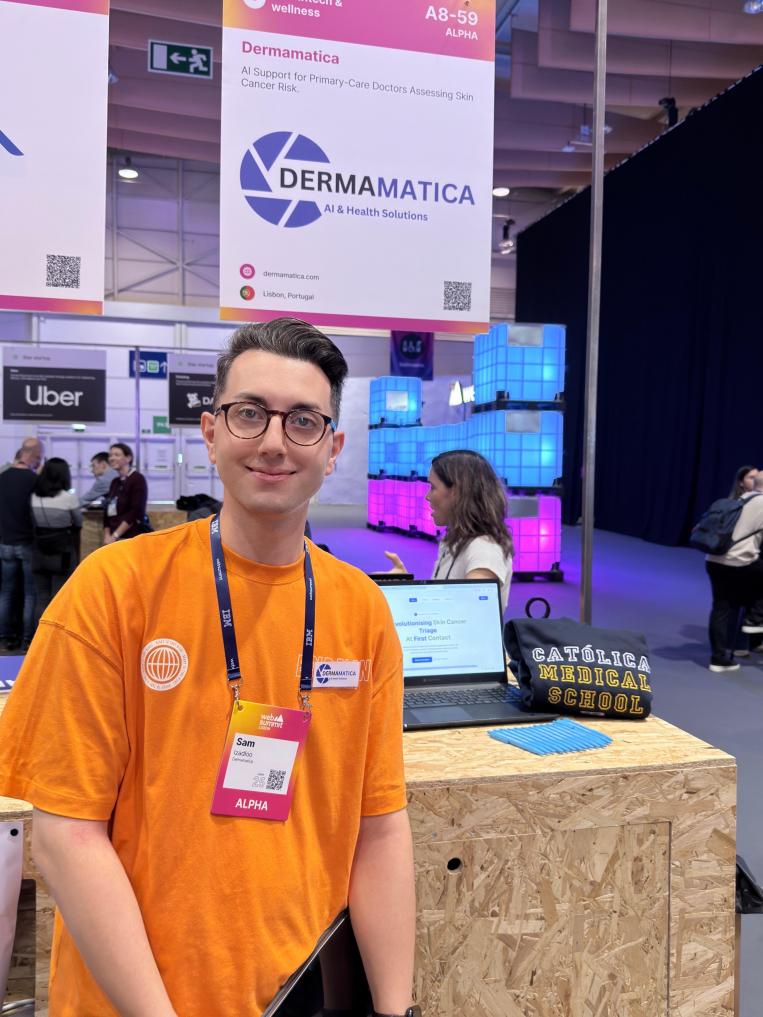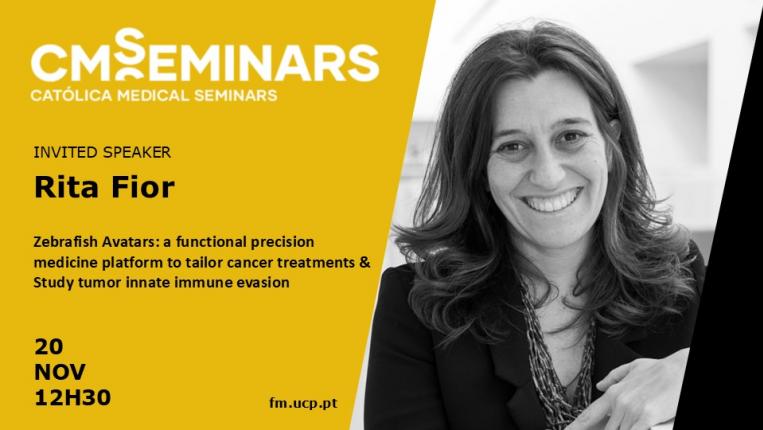Dermamatica, an emerging health-tech platform created to improve and accelerate early detection of skin cancer, was presented this week at Web Summit by its founder, Sam Izadloo — a student from Católica Medical School whose work has been rapidly attracting the attention of clinicians, investors, and technology leaders worldwide.

Developed to support primary care doctors at the first point of contact with the patient, Dermamatica uses explainable and multimodal AI to analyse skin images and provide an immediate and transparent risk assessment. With just the upload of a photograph, clinicians receive a risk score and a visual heatmap highlighting the features that informed the AI’s evaluation. This approach brings clarity, speeds up decision-making and strengthens clinical confidence.
Dermamatica addresses a persistent challenge in healthcare: the delays and uncertainties that often hinder early identification of skin cancer. Many patients receive late diagnoses due to limited access to dermatology, overloaded referral systems, and the difficulty general practitioners face in assessing ambiguous lesions during routine consultations. By equipping primary care with advanced visual intelligence, Dermamatica aims to streamline this pathway, enabling high-risk patients to reach specialist care sooner.
One of the platform’s most significant aspects is its commitment to explainability — an essential requirement for trust in medical AI. Instead of delivering opaque predictions, Dermamatica provides interpretable outputs that help clinicians understand why a lesion may be suspicious and support more informed decision-making.
Sam’s presence at Web Summit marks an important milestone for the project and highlights the growing role of young innovators in shaping the future of medical diagnostics. His work has drawn considerable interest from healthcare professionals seeking practical and scalable solutions to improve clinical outcomes through earlier detection.



